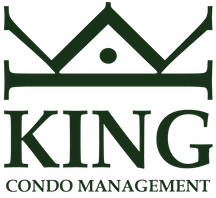On June 8, 2023, Bill 91 received Royal Assent and will be ‘the law’ effective October 1st, 2023 for Schedule 7 (the Condo Act). This mainly solidifies procedures for meetings by electronic means. The Schedule amends the Condominium Act, 1998. Here are some highlights:
1. Currently, “telephonic or electronic means” is defined for the purposes of subsection 52 (1) of the Act. The definition is amended and moved to subsection 1 (1) so that it applies for the purposes of the entire Act.
2. Amendments are made to the provision setting out the content requirements with respect to a notice of a meeting of directors. (See subsection 35 (3) of the Act).
3. Amendments are made to provide that meetings of directors or of owners may be held entirely by one or more telephonic or electronic means or by any combination of in-person attendance and by one or more telephonic or electronic means. The by-laws may limit the manner or manners by which such meetings may be held and may specify requirements that apply. A directors’ meeting held in such a manner must provide that all persons attending the meeting are able to communicate with each other simultaneously and instantaneously. An owner’s meeting held in such a manner must enable all persons entitled to attend the meeting to reasonably participate. (See subsections 35 (5) to (8) and 45 (6) to (9) of the Act).
4. An amendment is made to require a corporation’s record of owners and mortgagees to also include any prescribed information. (See subsection 46.1 (3) of the Act).
5. Amendments are made to provisions concerning the sending of notices to owners and mortgagees by electronic communication. Provision is also made to authorize certain by-laws with respect to sending notices by that method. (See subsections 47 (4) to (6) of the Act).
6. Amendments are made to provide that a notice of a meeting of owners is not required to specify a place of the meeting if it is to be held entirely by one or more telephonic or electronic means. (See subsection 47 (7.1) of the Act).
7. Amendments are made to provide that, at a meeting of owners, a vote by a show of hands or by a recorded vote may be conducted entirely by one or more telephonic or electronic means or by any combination of in-person attendance and by one or more telephonic or electronic means. The by-laws may limit the method or methods by which such a vote may be conducted and may specify requirements that apply. (See subsections 52 (1.1) and (1.1.1) of the Act).
8. Certain amendments are made to the rules concerning what constitutes service of things other than notices that are required to be given to an owner or a mortgagee under the Act. (See section 54 of the Act).
9. Amendments are made to the record-keeping requirements with respect to ballots and instruments appointing a proxy for meetings of owners. (See subsection 55 (1) of the Act).
10. The Lieutenant Governor in Council is authorized to make regulations governing the giving of a notice under clause 47 (4) (c) or (5) (c) of the Act. Also, the Minister is authorized to make regulations governing transitional matters. (See subsections 177 (1) and (2) of the Act).
11. Currently, Part IV.1 (Special Rules During Emergency) of the Act provides that certain provisions of the Act are temporarily suspended and that replacement provisions, set out in the Schedule to the Act, apply during the temporary suspension period. Part IV.1 and the Schedule are repealed. The regulation extending the temporary suspension period is also revoked.
12. Other technical amendments are made. All of the above amendments come into force on October 1, 2023.


Leave a Reply